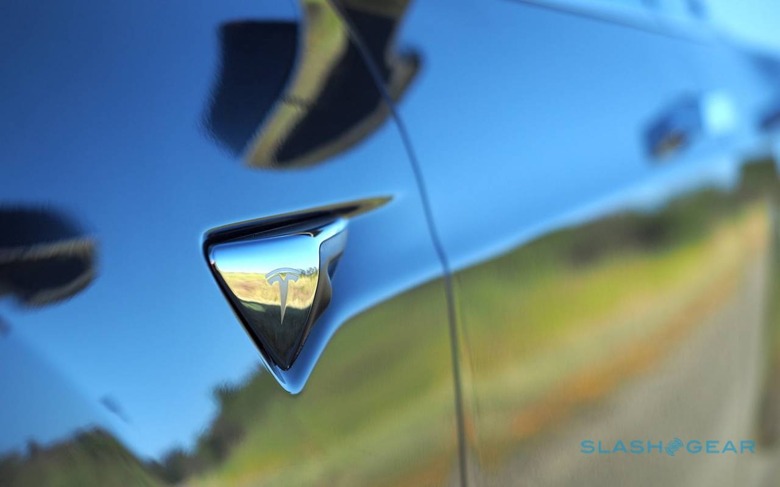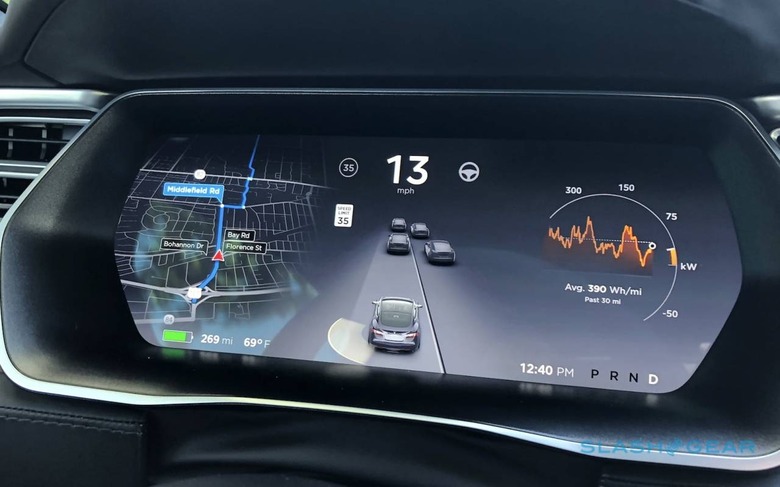Tesla Autopilot Is Getting Aggression Settings
Tesla plans to allow drivers to make Autopilot more aggressive on the road, Elon Musk has revealed, even if doing so also dials up the risk of accidents. Musk confirmed the upcoming setting at the Tesla Autonomy Day, the automaker's first public deep-dive into the work it has been putting into creating self-driving vehicles.
Tesla's approach to autonomous driving has certainly been controversial. The automaker has arguably been the most aggressive in pushing out driver-assistance technologies for public use, delivering new Autopilot features via over-the-air updates to EVs while testing its fully-autonomous algorithms in so-called "shadow mode" in the background.
One such update delivered the ability for Tesla cars with Autopilot to automatically change lanes. Initially, that required the driver to initiate the lane change, by indicating. More recently, however, Navigate on Autopilot has added the ability to decide to change lane and carry that process out, without first running it past the driver. Now, Tesla says, it's seeing over 100,000 automated lane changes carried out successfully every day, with zero accidents so far.

That's great in theory but, as one attendee at the analyst and investor event today pointed out, it doesn't necessarily work so well depending on how aggressive other drivers are on the road at the time. If you're trying to deal with particularly competitive highways – such as those in Los Angeles – then other human drivers may not allow the sort of spaces the current Autopilot system decides it requires to safely switch lanes.
In the future, however, Tesla plans to address that with more flexibility over how the AI drives. "We'll offer more aggressive options over time that users can specify," Musk said.
"We've been conservative," Musk explained of Tesla's approach so far. However as the automaker gets confident in the resilience of its algorithms, it's planning to let Autopilot get more ambitious. What's interesting is that those changes will, to at least some extent, be left up to owners to decide how far to implement.

That will include a decision that could see the likelihood of accidents increase. "In the more aggressive modes in traffic there is the slight chance of a fender-bender," Musk conceded. The outspoken CEO laughed as he described it as "Mad Max Plus" mode. "You can just dial the setting up. Be more aggressive, be less aggressive. Chill mode, aggressive."
It's not the first time we've seen talk of more human-like driving habits being required, if autonomous technologies are to ever be practical in the real world. One argument has been that, if self-driving vehicles are too perfect, they'll actually prove to be uncomfortable for riders and incompatible with other road users.
What remains to be seen is how Tesla's decision might impact liability. Currently, Autopilot – despite its capabilities – is still considered a driver-assistance system. As such Tesla owners are still expected to be monitoring the system and ready to take over should something go wrong. If that driver has dialed up the aggressiveness of Autopilot, it's uncertain how that could play into the legal implications of that potential "fender-bender" when insurers, police, investigators, and others get involved.
